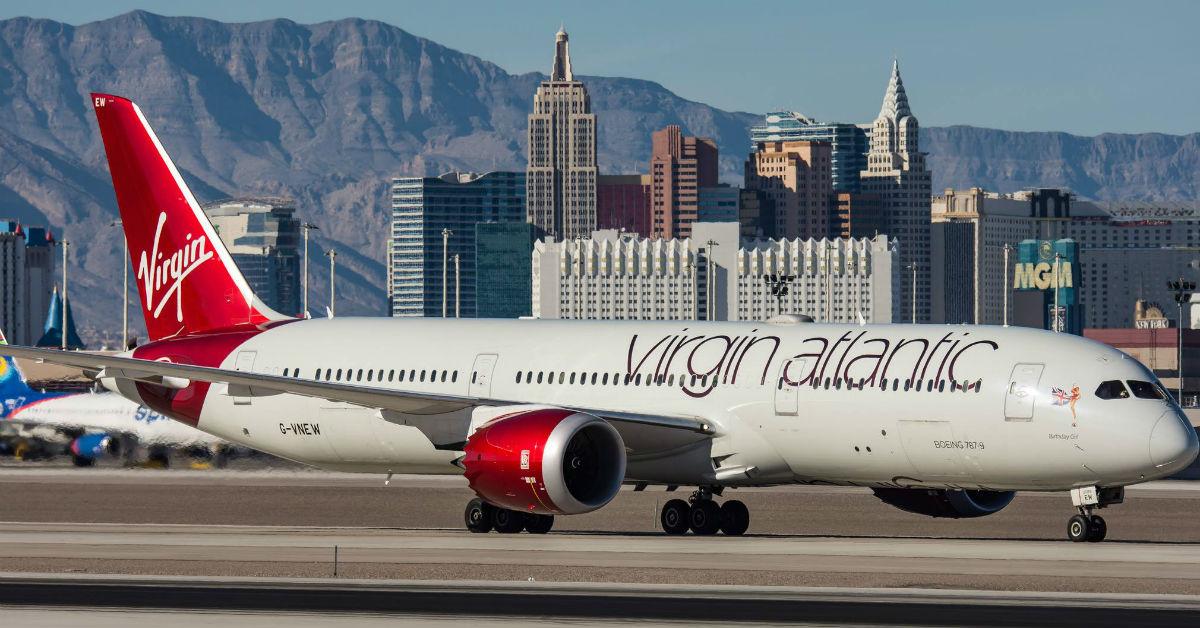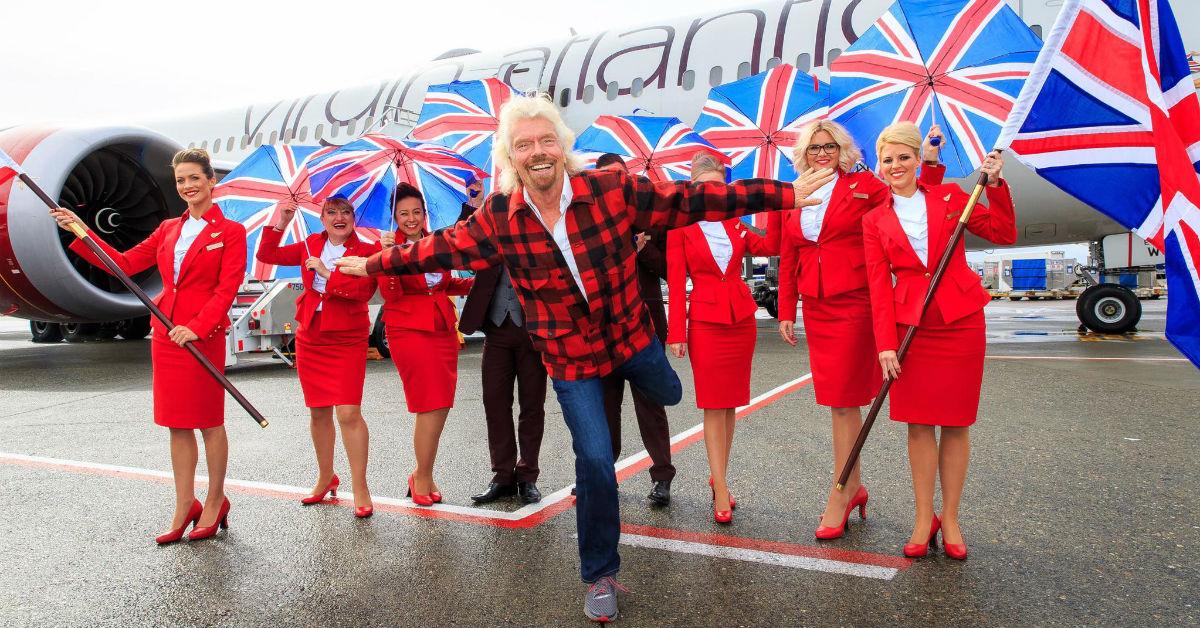Virgin Atlantic Takes First Flight On A More Sustainable Jet Fuel
For the first time ever, the airline flew on LanzaTech jet fuel derived from industrial waste on steel mills.
Updated Oct. 12 2018, 11:56 a.m. ET
Virgin Atlantic passengers are now flying the skies with a very different fuel source. The airline just piloted an international trip with LanzaTech jet fuel, a sustainable alternative that has never been used in a commercial flight.
The flight took place on October 3 aboard a 747 airplane. It wasn't a quick trek, either. LanzaTech fuel powered a Virgin Atlantic trip from Orlando to London’s Gatwick Airport, a flight that normally takes about nine hours.
Virgin Atlantic founder Richard Branson was on hand to personally marshall the plane into its gate. He published a celebratory blog post on Virgin's official website after the landing.
"There was rapturous applause from the passengers and the crew," he recalled in the post. "I could tell everyone was as excited as I was by the enormous potential of this new technology."
Virgin Atlantic and LanzaTech make aviation historyToday we made aviation history. Find out more about our world first flight with LanzaTech and their sustainable jet fuel. https://virg.in/3X3
Posted by Virgin Atlantic on Wednesday, October 3, 2018
Virgin Atlantic has been working with LanzaTech since 2011 to develop this low-carbon jet fuel. Now that it’s finally ready for takeoff, the airline is excited to demonstrate its potential.
“We have invested in and worked with a number of fuel companies over the years and... we are partnered with LanzaTech because of its impressive sustainability profile and commercial potential,” Branson said in a February press release.
“LanzaTech is pioneering technology we couldn’t even imagine ten years ago, and we are now at the critical point where bringing the world’s first commercial, low carbon fuel to market is within touching distance.”
So how exactly is this jet fuel made? It starts on an industrial plant. LanzaTech harvests waste gases from steel mills, stopping them from hitting the atmosphere. Then, the company converts these gases into ethanol. This serves as the basis for the fuel.
According to another Virgin Atlantic press release, this fuel could potentially emit over 70 percent lower carbon emissions than traditional “fossil jet” sources. Since LanzaTech recycles gases from industrial sites, the supply stream is abundant and affordable and it also requires less land, because Virgin Atlantic is using preexisting mills rather than hunting for fossil fuels.
The LanzaTech partnership is a natural next step for the airline, which is also the first to fly with biofuel. Virgin Atlantic hit this milestone in 2008 when it piloted a European continental flight with a mix of traditional fuel and one sourced from coconut and babassu oil.
“The search to find a sustainable aviation fuel has been a long standing challenge for airlines and fuel companies,” Branson said in the February release. “In the decade since Virgin Atlantic became the first airline to operate a commercial flight using a biofuel blend, tremendous progress has been made.”
The October flight with LanzaTech jet fuel served as a test of that progress — and a pitch for others to invest in industrial waste as a fuel source. LanzaTech estimates its harvesting process could be retrofitted to 65 percent of steel mills worldwide, and with that kind of bandwidth, the company could produce almost one-fifth of the jet fuel used annually at a commercially viable cost.
Branson further claims the technology has the potential to produce up to 125 million gallons per year in the UK, which would be enough fuel to pilot all of Virgin Atlantic's flights out of London. Such a switch would translate to nearly one million tonnes of annual carbon dioxide savings.
Virgin Atlantic is currently coordinating with the British government to lock down a carbon capture and utilization (CCU) commercial jet fuel production plant in the UK to achieve this goal. Has the flight tipped the scales in the company’s favor? Virgin Atlantic hopes so.
"We’ve had some great support from the UK government so far," Branson wrote in his October update. "But we now need to turn this into firm government action on incentives and investor commitment, to help us accelerate towards building the world’s first full size plant producing jet fuel from waste carbon gases."

